Channel deaths: ‘It was inevitable this was going to happen’
- Published
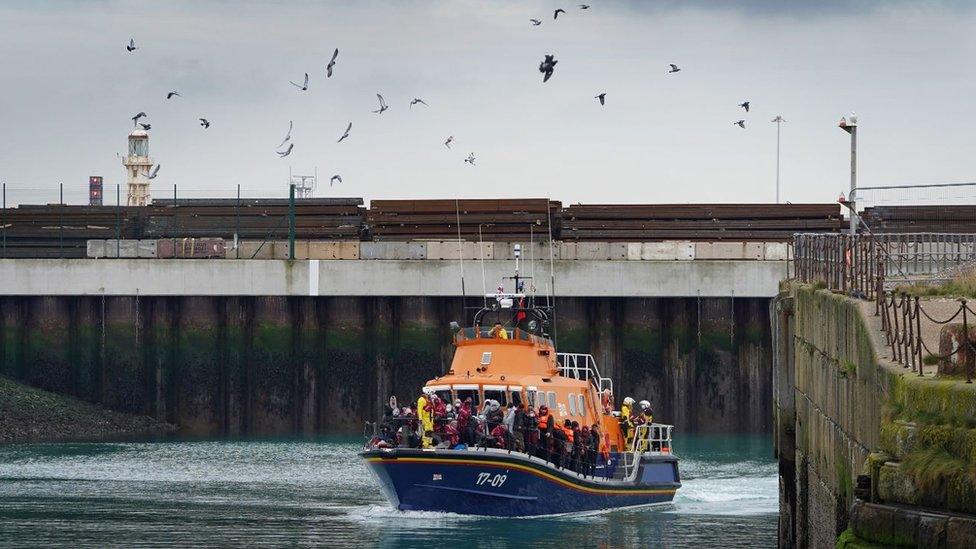
An RNLI boat could be seen bringing more people into Dover in the hours after the tragedy
"Welcome to Dover in White Cliffs Country," proclaims the sign which greets visitors to the Kent port town.
For many years, Dover and its famous White Cliffs, immortalised by Forces' sweetheart Dame Vera Lynn in her wartime song, has been the first sight for thousands of migrants who have made perilous journeys on dinghies across the English Channel.
The deaths of 27 people, including women and children, near Calais on Wednesday, has brought into sharp focus the dangerous lengths migrants are prepared to go to reach the Kent coast.
And in Dover, residents voiced sadness over the drownings, along with frustration that it seemed to be a tragedy waiting to happen.
On Biggin Street, in the shadow of Dover Castle, not far from where many migrants have landed, retired caretaker Phillip Jones, 67, sympathised with those fleeing war-torn countries in an effort to forge a better life in Britain.
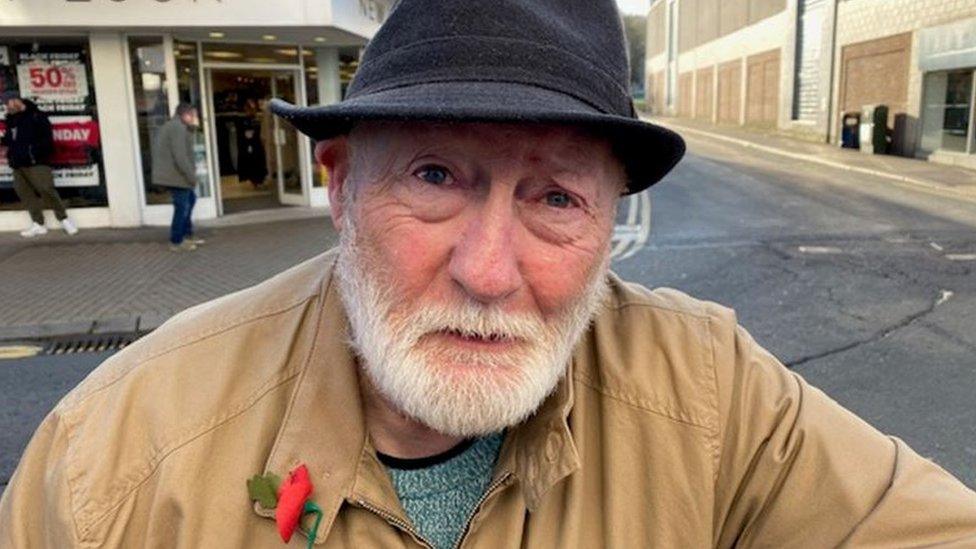
Retired caretaker Phillip Jones believes France should take sterner action
He said: "These people who are trying to come over here, they are still human beings. And we are not animals trying to stop them from coming over. We in Dover are just a gateway, to what they think will be a better life.
"I do feel sorry for them. They have got to be absolutely desperate to try to come over here in freezing conditions, across the Channel in flimsy boats. Imagine what they are leaving behind."
Mr Jones also believes France should take sterner action to clamp down on people smugglers.
"I don't have an answer to stop this happening again. But I do feel the French should take more responsibility from stopping the crossings at their end."
Georgia Gambrill, 18, expressed a sense of inevitability that a tragedy like this would end up happening, given the record numbers that have risked their lives to reach the UK recently.
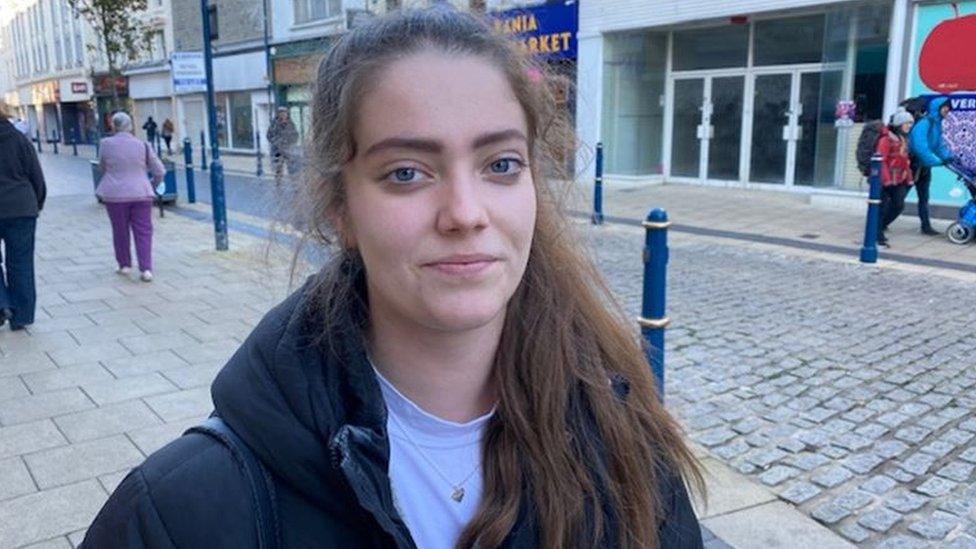
Georgia Gambrill, 18, said the tragedy was inevitable
She said: "It's just sad that people have to do that sort of thing in order to get somewhere where they feel safe. I can't imagine what it must be like. And I know it sounds awful, but I think it was inevitable that this was going to happen, particularly at this time of year."
Others on Biggin Street expressed surprise that vast numbers of people continue to make the dangerous crossing, when in previous years they have tended to tail off before the setting in of winter.
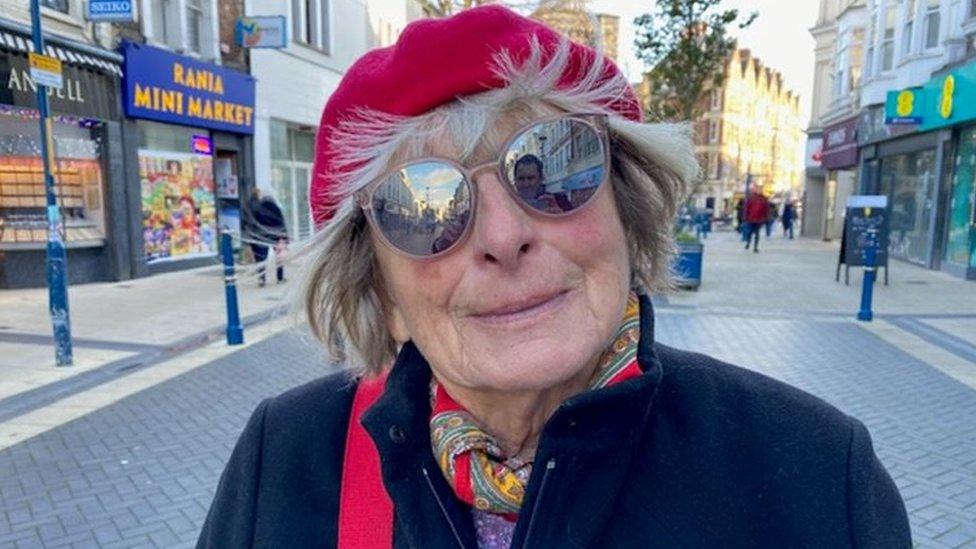
Retired teacher Klara Nelson said the issue had to be sorted at "source" in the migrants' home countries
Retired teacher Klara Nelson said the French and British governments are powerless to stop future tragedies.
She said: "It can't be sorted here, it's got to be sorted at source - and by that I mean in Afghanistan or Iran, or wherever else they are coming from.
"I have lived in Dover since 1975 and I recognise that the people coming over don't want to settle in this town. They want to go to London. I'm surprised there have not been more deaths up until now. It has got to be sorted, otherwise it will get worse."
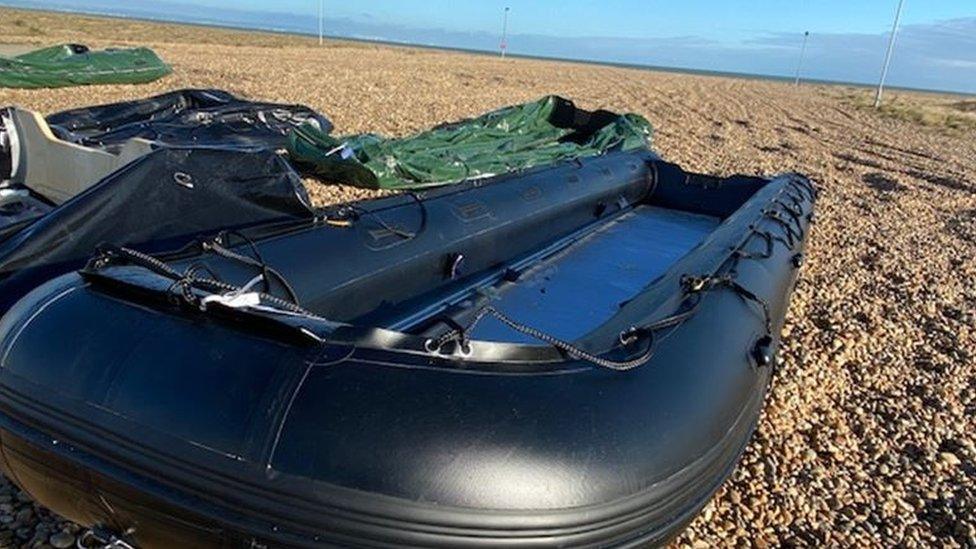
Empty dinghies in Dungeness
About 30 miles along the coast from Dover, sodden lifejackets and empty dinghies lay outside Dungeness RNLI station following reports of further landings by migrants on the day the 27 died.
Dover is not the sole destination for people smugglers who are behind the illegal crossings.
Eastbourne, Hastings, St Leonards and Lydd are among other areas along the Kent and Sussex coastal strip which have also seen migrant landings.
But back on Biggin Street, Jack Brown expressed sadness at the mass loss of life and said: "I feel perhaps this could have been avoided if they had settled in the first safe country they had reached."
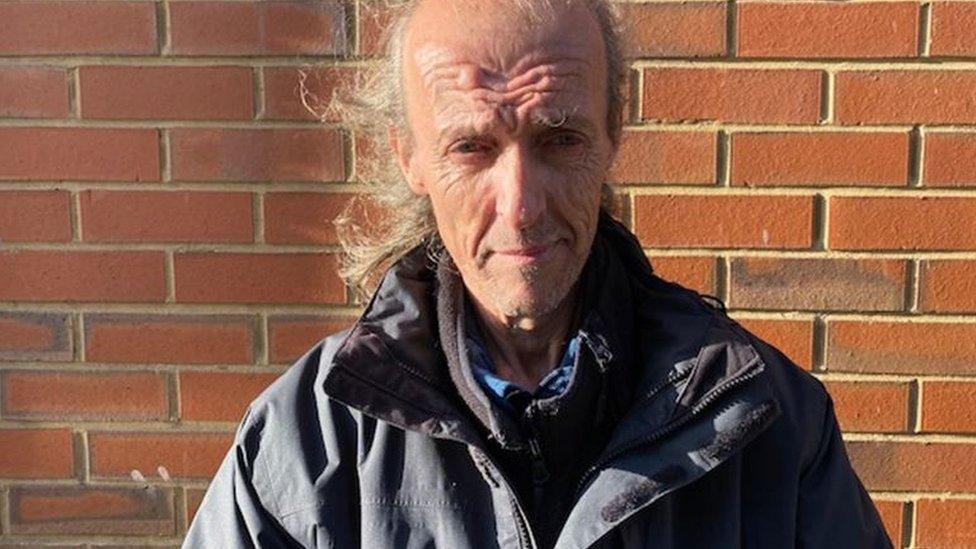
Jack Brown said the tragedy could have been avoided if the migrants had settled in the first safe country
Amid the sympathy and sorrow at the mass loss of life is anger among some who feel a sense of inevitability that this would at some point happen in the world's busiest shipping lane.
The Bishop of Dover Dr Rose Hudson-Wilkin said: "I am feeling a deep, inner rage that the world continues to allow this to happen. Couched with political rhetoric as to whose fault it is. This is all our fault. We must all take responsibility."
Andy Roberts, a former coastguard manager for the Dover Straits, said: "The tragedy that happened yesterday has been inevitable. What we must not forget is the Dover Straits is the busiest thoroughfare for shipping in the world.
"There is over 500 commercial shipping movements a day - that is excluding any pleasure craft or unorthodox craft such as the ones that the migrants are using. It absolutely was inevitable that this would happen and it's so tragic.
'Sad and angry'
"You've got craft that are not suitable for making that crossing. You have got people who are not trained. They do not have the right equipment, they don't have the right clothes. It's very cold now and it's a 21-mile crossing."
Bridget Chapman, of the Kent Refugee Action Network (KRAN), said adding more patrols on the French coast would push people to try to cross to the UK from countries like Belgium, involving longer and more dangerous journeys.
She said: "Nothing the government has done has worked. Yesterday was unspeakable. It was completely avoidable. I am sad and I am really angry that it has happened.
"The government has to step up and accept that we cannot use the fact that we are an island and surrounded by water to abdicate from our responsibilities, to accept our share of people seeking sanctuary."

Follow BBC South East on Facebook, external, on Twitter, external, and on Instagram, external. Send your story ideas to southeasttoday@bbc.co.uk